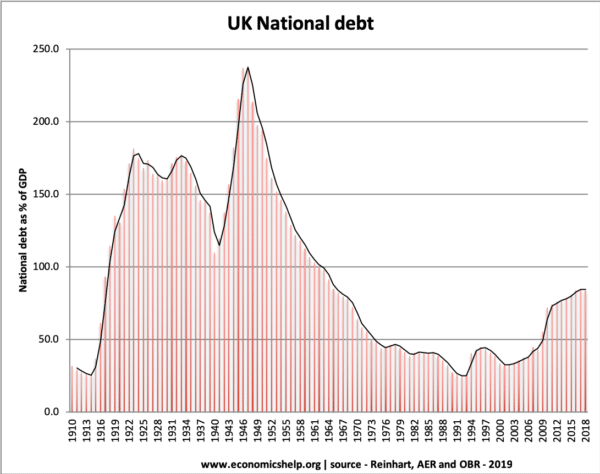I studied PPE at Lady Margaret Hall, Oxford University between 1995-99. Quite often people ask me for tips on applying and the interview, so here are a few suggestions.
Mock Interview Practise

If you are interested in arranging a mock interview, please contact me here.
During the interview:
- I will ask questions based on your personal statement
- I ask questions that may get asked in PPE
- Ask questions on (unseen) stimulus material, such as graphs, extracts and short quizzes.
- Identify areas of weakness and things to improve on.
Preparation
- A good reading list is important. Some suggestions here: PPE reading list
- But, also do follow your own interests. A good economics book to read is one that you find interesting. There are no right and wrong choices.
- Personal statement – mainly about your academic studies. Need to show why you would be a good interesting candidate.
Interview Tips
Be prepared to speak about any books/interests you mention in your personal statement.
A good preparation would be to practice summarising some of your reading lists. This helps you to remember what you read, but also the ability to summarise a book is a key element of PPE. (I remember very long reading lists, the ability to condense information was vital)
The interviewers are looking for people who will be interesting and rewarding to teach. A good student will have the following qualities.
- Interested in the subject.
- Able to effectively argue and explain the subject material.
- Ability to think for themselves and come to reasoned conclusions.
- Confident in the ability to discuss concepts, but also a degree of humility. You’ve come to learn, not to know everything already.
- A sense of reliability and good manners.
- Respond to follow up questions.
- It is important to express your thinking. Often it is not a question of giving a correct answer, but the thought process in how you get there.
- Don’t panic if you don’t know the answer, try to give an informed response and perhaps suggest why you can’t answer.
- Don’t worry if you slightly alter your opinion/position in response to follow up questions. But, equally, avoid the temptation to automatically agree with the interviewer – they don’t want obedience. An interviewer may well take up a position they don’t believe in, just to create a debate.
I would want to ask a couple of questions related to their personal statements. For example, if they have read Freakonomics, I might ask something like
Could you give a good example of how economics influences people’s behaviour in everyday life?
Stimulus Material
You are highly likely to be given some material which you won’t have seen before. This might be an article from the Economist or even some data figures and asked to comment on it. They will choose things that you can’t really prepare for. It may not even be related to PPE. Here they are testing the ability to learn and respond to the material.
Example
It may be some article of 400 words, you are asked to summarise. This is worth practising. Read a few good articles and mentally practise summarising them. The Economist is probably a good standard, but they might take it from a variety of sources.
Graphs and Data
I suggest looking at graphs, such as from the Economist Graphic detail, and spending time trying to understand what they say. I publish quite a few graphs of the UK economy on here too.
If it was me, I might ask something like:
What does this tell us about UK society in the past 100 years?
Difficult Questions
Contrary to urban legends, Oxford dons are not really interested in asking ridiculous questions designed to flummox you and leave you stranded. But, they may still ask deliberately difficult questions, which may prove hard to answer. It is important not to be judging yourself too hard. Do your best, but be aware you might only be able to partially answer the question.
My biggest memory from my own PPE interview was in the Philosophy interview being asked a question about logic. I couldn’t answer it, and they only seemed to have that one question, so I just sat there for 20 minutes looking blank and vacant. Of course, I was convinced I wouldn’t get in, but I was wrong. It was still a bizarre interview. I never liked philosophy and dropped it after the first year.
Answer the Question
When doing mock interviews, the biggest failing is often candidates not listening to the question I asked, but talking about a subject in general. For example. If I asked
Would increasing taxes on the rich create disincentives to work?
Often candidates may get sidetracked into talking about the morality of increasing taxes. If you can always keep your answer related to the question asked, the interviewer will be definitely pleased. They may well ask the follow-up questions, you would like to talk about. But, if you go off the question, it shows
- It sounds like you weren’t listening to the tutor – they don’t like that!
- Perhaps trying to show off knowledge, that you don’t have.
Final Tips
- Be prepared to be given unexpected material like text, graphs. They are not trying to catch you out, but see how you think – in an environment where you cannot prepare beforehand.
- It’s fine to ask the question to be repeated if you didn’t understand/hear the question.
- You don’t have to rush into answering a question. But, if possible avoid lengthy silences
- If relevant you can quote ideas / respected people. E.g. Keynesian response, as J.S. Mill said in Liberty. But, don’t force it – it sounds a bit strange if you drop some famous quote lacking any real context.
- They try to make the interview something you can’t prepare for too much. Don’t spend all night ‘revising’ just try to be relaxed and in a good frame of mind.
- A practise interview is good to have. For example, the last candidate I interviewed spoke so quickly in the first interview. I was able to tell him to slow down his delivery. He came across much better in the second interview.
- It’s very hard to evaluate how well you have done. Sometimes people think they have done badly when they did better than expected. Don’t judge yourself too much.
Related
- Application tips from Merton College – worth checking out.


3 thoughts on “Application and Interview Tips for PPE at Oxford University”
Comments are closed.